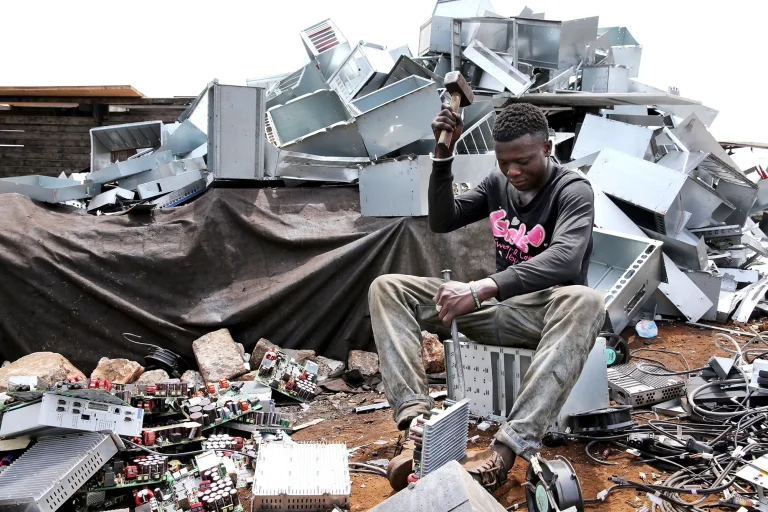From Bargain to Burden: How Cheap Tech Becomes Toxic Waste in Ghana
In the bustling markets of Accra City, cheap phones and electronics can be easy to find. These gadgets usually offer a chance to connect to the world but their affordability comes at a deadly price. Environmental and human costs.
Much of this tech is imported second-hand, normally from foreign countries under the label of “working electronics.” In reality, many are barely functional or already useless. Once in Ghana, they may serve users for only a few months before becoming redundant. Most of these e-waste devices end up in informal dumps like the notorious Agbogbloshie site.
Here, young men called “burner boys” salvage valuable metals by burning wires and circuit boards in open air. The resulting smoke releases toxic substances like lead, cadmium, and dioxins. For these workers, the trade-off is clear – a few dollars a day in exchange for long-term health risks such as respiratory diseases, neurological disorders, and even cancer.
Ghana has passed a few e-waste laws aimed at controlling imports and improving recycling practices. However, enforcement remains extremely weak. Meanwhile, initiatives funded by the EU and Germany are helping set up safer recycling centers and formalize parts of the sector. These efforts are in their early stages and yet to record significant impact on a national scale.
The real responsibility lies upstream. Exporting countries must stop shipping unusable devices under loopholes, and consumers worldwide need to demand more durable, repairable electronics. What looks like a cheap bargain on one end of the world becomes a toxic burden on another.
Until systemic change happens, the cycle will continue. Until then unfortunately, the digital dreams of the Global South are powered by the discarded, dangerous waste of the North.

